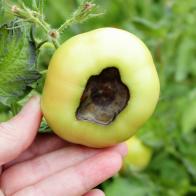How to Recycle — Not Just Wishcycle
Every day, people stand between bins, trying to decide if an item can be recycled. Unsure, many throw the item in the recycling, hoping that it can be reused. But was it really recyclable? This common practice (you know you do it) is called wishcycling. While many of us want to recycle and compost as much as possible to help the planet, in reality, wishcycling can do more harm than good.
According to Recycle Coach, unrecyclable materials often cause conveyor belts at recycling plants to become jammed, which puts workers in precarious situations as they try to resolve the issue. It also causes usable materials to be downcycled or sent to landfills because of the contamination. Wishcycling increases our carbon footprint, as non-recyclable items must be shipped from the recycling plant to the landfill, and it increases taxes because of this additional transportation.
Learn more about common items you may *think* are recyclable but often aren’t — or aren’t without some extra steps.
.-Battle-on-the-Beach-courtesy-of-HGTV.-.jpg.rend.hgtvcom.196.196.suffix/1714847929029.jpeg)







